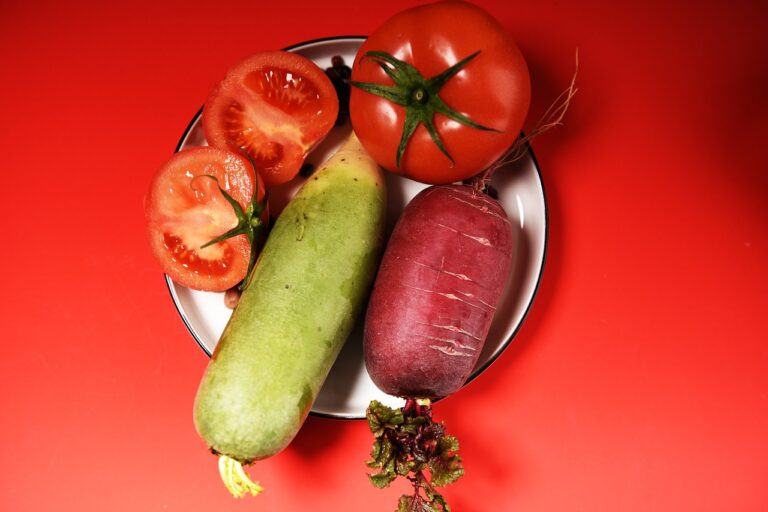The Role of Seasonings and Marinades in Meat Processing: 11xplay.online login, Laser book 247.com, Tigerexch247
11xplay.online login, laser book 247.com, tigerexch247: Seasonings and marinades play a crucial role in meat processing, enhancing the taste, texture, and overall flavor of the final product. Whether you are a professional chef or a home cook, understanding the importance of using the right seasonings and marinades can take your meat dishes to the next level. In this article, we will explore the various ways in which seasonings and marinades can influence the quality of meat, as well as provide some tips and tricks for creating delicious and flavorful dishes.
The Role of Seasonings in Meat Processing
Seasonings are essential ingredients in meat processing, as they add depth, complexity, and dimension to the flavor profile of the meat. From basic salt and pepper to more exotic spices and herbs, seasonings can transform a bland piece of meat into a mouth-watering culinary delight. Seasonings not only enhance the taste of the meat but also help to tenderize and preserve it.
Some common seasonings used in meat processing include:
– Salt: Salt is a fundamental seasoning that enhances the natural flavor of meat and helps to tenderize it by breaking down proteins. It also acts as a preservative, extending the shelf life of the meat.
– Pepper: Pepper adds heat and depth to the flavor profile of meat, balancing out the richness of fattier cuts. It is a versatile seasoning that can be used in a variety of dishes.
– Garlic: Garlic is a pungent seasoning that adds a robust flavor to meat dishes. It pairs well with a wide range of meats, from chicken to beef to lamb.
– Herbs: Herbs such as rosemary, thyme, and oregano can add a fresh and aromatic element to meat dishes. They complement the natural flavors of the meat and help to create a well-rounded dish.
– Spices: Spices like cumin, paprika, and chili powder can add depth and complexity to meat dishes. They can also add heat and richness to the flavor profile of the meat.
The Role of Marinades in Meat Processing
Marinades are mixtures of seasonings, oils, acids, and other ingredients that are used to flavor and tenderize meat. Marinades can add moisture and enhance the flavor of the meat, making it more juicy and flavorful. They can also help to break down tough muscle fibers, resulting in a more tender and succulent final product.
Some common ingredients used in marinades include:
– Acids: Acids such as vinegar, lemon juice, and yogurt can help to tenderize meat by breaking down tough muscle fibers. They also add brightness and acidity to the flavor profile of the meat.
– Oils: Oils such as olive oil, sesame oil, and coconut oil can add richness and depth to the flavor of the meat. They also help to coat the meat, sealing in moisture and preventing it from drying out during cooking.
– Aromatic ingredients: Aromatic ingredients like garlic, ginger, onions, and fresh herbs can add complex flavors to the meat. They can also add depth and dimension to the marinade, making it more flavorful.
– Sweeteners: Sweeteners like honey, sugar, and maple syrup can add sweetness and caramelization to the meat. They can balance out the acidity of the marinade and add a hint of sweetness to the final dish.
Tips for Using Seasonings and Marinades
– Use fresh ingredients: Fresh herbs, spices, and aromatics have more intense flavors than dried or processed versions. Using fresh ingredients can elevate the taste of your meat dishes.
– Experiment with different flavor profiles: Don’t be afraid to try new combinations of seasonings and marinades. Experimenting with different flavors can help you discover new and exciting ways to enhance the taste of your meat dishes.
– Allow for marinating time: For the best results, give your meat plenty of time to marinate. Ideally, meats should marinate for at least 30 minutes to several hours, or even overnight for maximum flavor.
– Don’t over-marinate: Be cautious not to over-marinate your meat, as prolonged exposure to acidic marinades can break down the protein fibers too much, resulting in a mushy texture.
– Consider the cooking method: Different cooking methods, such as grilling, roasting, or braising, can affect how the seasonings and marinades interact with the meat. Be mindful of how your chosen cooking method may impact the final flavor of the dish.
In conclusion, seasonings and marinades are essential components of meat processing, enhancing the taste, texture, and overall flavor of the final product. By using the right seasonings and marinades, you can elevate your meat dishes to new heights, creating delicious and flavorful meals that will impress your family and friends.
FAQs
Q: Can I use the same marinade for different types of meat?
A: While you can use the same marinade for different types of meat, keep in mind that the flavors may not be as well-suited for all types of meat. It’s best to tailor your marinade to complement the specific type of meat you are using for optimal results.
Q: How long can I keep marinated meat in the fridge before cooking?
A: It’s generally safe to keep marinated meat in the fridge for up to 2 days before cooking. Be sure to refrigerate the meat in an airtight container to prevent any cross-contamination with other foods.
Q: Should I rinse off the marinade before cooking the meat?
A: It’s not necessary to rinse off the marinade before cooking the meat, as the marinade helps to infuse flavor into the meat. However, you can pat the meat dry with paper towels before cooking if you prefer a crustier exterior.
Q: Can I freeze marinated meat for later use?
A: Yes, you can freeze marinated meat for later use. Be sure to thaw the meat in the refrigerator before cooking to ensure even cooking and optimal flavor.







